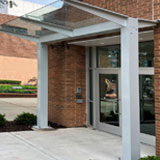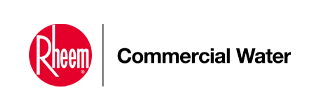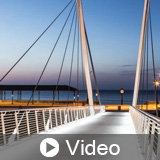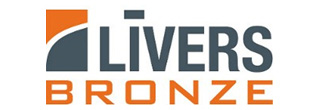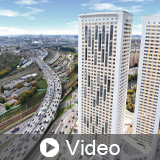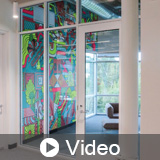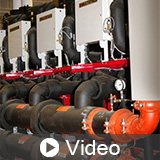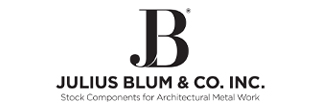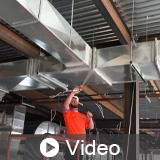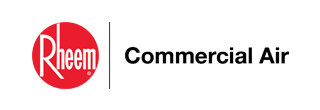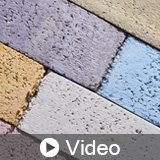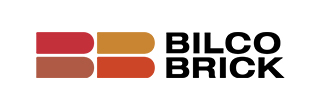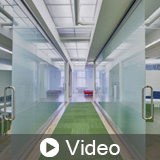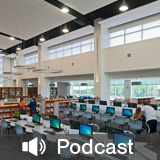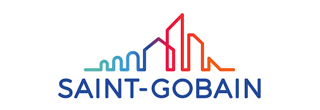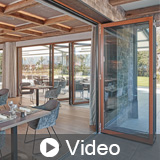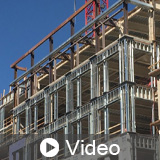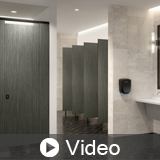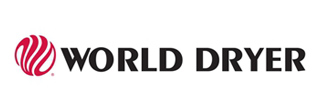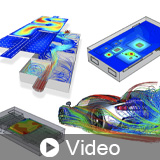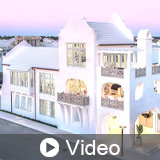The goal of this course is mainly to create awareness about powder coating technology as an environmentally friendly alternative to liquid coatings. After this course, the design professional will be aware of the environmental and physical advantages of powder coating systems in order to knowledgably specify them in plac...
Alberta Association of Architects
2 Upcoming Webinars
|
Thu Mar 5 - 12:00 pm EST
|
|
Wed Apr 15 - 12:00 pm EDT
|
152 Online Courses
Free Course
|
|
Explore the nuances of water quality for closed loop hydronic boiler systems and how it impacts the overall operability and longevity of heating systems. Join us in this one-hour course as we discuss pH, Hardness, Total Dissolved Solids, Chlorides, and filtration of closed loops systems and the long-term performance of h...
|
|
Handrails and guardrails are a safety feature that we easily take for granted as common fixture of the environment where stairs and balconies are a feature, aiding us in our coming and going. In this presentation, we discuss how handrails and guardrails can meet safety, sustainability, aesthetic, and ADA requirements and...
|
|
It's challenging these days, when you put up a structure, be it a commercial building or a residence, hotels, etc. Anything that you're putting up there has to have a sound element to it. We're challenged by air traffic, rail traffic, highway traffic, construction site noise, outdoor concert noise; we have it all. Theref...
|
|
Customizable, integrable clean rooms designed for drug compounding environments. Join us for this one-hour course on adaptable clean rooms engineered for in pharmacy settings. Facilitating USP Compounding Compendium to guide the design, development and construction of clean rooms, these spaces are biotech, pharmaceutical...
|
|
Aluminum doors and frames are increasingly popular in commercial interiors for their clean aesthetics and strong performance. This course explores practical applications of aluminum framing systems in modern architectural projects. Learn how to specify systems that meet fire and acoustic requirements, support flexible de...
|
|
Energy costs are soaring across the country and owners are looking for cost-effective and sustainable solutions to provide hot water for their buildings. In this course, we discuss how market conditions and consumer demand are driving the move to Commercial Heat Pump Water Heating (CHPHW) systems. We describe the benefit...
|
|
Architectural railings play a dual role in the built environment, necessitating a delicate balance between elegance and functionality, adherence to codes, and aesthetic appeal. A well-crafted railing not only serves its practical purpose but also elevates the architectural experience, turning a utilitarian feature into a...
|
|
In this one-hour course, we will consider the components necessary to keep an HVAC system functioning efficiently. We will examine various types of sealants and coatings and how best practices concerning their installation and quality control can be used to increase the lifespan of the HVAC system. This course will explo...
|
|
In this one-hour course, we explore the constantly evolving concepts of Indoor Air Quality (IAQ) and Indoor Environmental Quality (IEQ). These two terms have been around for years but have gained newfound importance due to the pandemic. We will review design standards related to IAQ and IEQ, with a focus on the nine foun...
|
|
Concrete brick has often been overlooked, yet it delivers many of the qualities that architects have been looking for all along. With the same familiar look and installation process as clay brick, concrete brick adds advantages that make it a strong option for today’s projects. This course explores how concrete brick is...
|
|
Moveable walls offer a versatile solution that goes beyond mere spatial flexibility; they contribute significantly to daylight optimization, acoustic performance, utilization of healthy building materials, and enhancement of occupant well-being and comfort. In this course we explore ADA, ASTM, and LEED v4.1 BD+C and ID+C...
|
|
Specifying a sustainable HVAC system is essential for achieving a more efficient, comfortable, durable, cost-effective, and environmentally friendly built environment. In this course, our team discusses why design professionals should specify sustainably manufactured HVAC products that help reduce waste, decrease carbon...
|
|
How does cementitious fireproofing contribute to both fire safety and sustainability in modern building design, and what role does it play in achieving LEED v4.1 BD+C certification? This course explores the fundamental principles of cementitious fireproofing, its environmental impact, and its role in sustainable building...
|
|
Passing the standard, to establish a new mark in accessibility and window intercom systems. Join us in this comprehensive course on the advancements and innovations in window intercom systems, with a particular focus on the superior performance, quality, and design. In this course, participants will gain an in-depth unde...
|
|
Imagine seamlessly blending indoor environments with the natural world while achieving sustainability goals. Operable glass walls aren't just architectural elements, they're catalysts for transformation, offering design professionals a strategic advantage in pursuing LEED v4.1 BD+C and ID+C credits. These innovative syst...
|
|
This course offers architects, designers, engineers, and specification writers a comprehensive foundation of knowledge essential for navigating the dynamic landscape of cold-formed steel framing. Participants will gain practical insights into how this industry aligns with the latest standards in code compliance, structur...
|
|
This course provides design professionals with a comprehensive approach to designing commercial restrooms that prioritize occupant health, safety, and welfare through user-centered solutions, universal design principles, and product innovation. Participants will explore essential elements of restroom design, including th...
|
|
In this presentation, we discuss Computational Fluid Dynamics (CFD) and how it can be used as a tool by building designers to ensure occupant health and safety. We interpret CFD analyses to make design improvements for optimal air movement, cohesive comfort for occupants, and efficiency. Finally, we explain how destratif...
|
|
The roof of a building is not only vital as a structural component but can also be an important design feature that makes a building stand out among others. Join us in this one-hour course as we discuss the installation methods of concrete roof tile systems that minimize environmental impact while maximizing durability...
|

_0.jpg)
